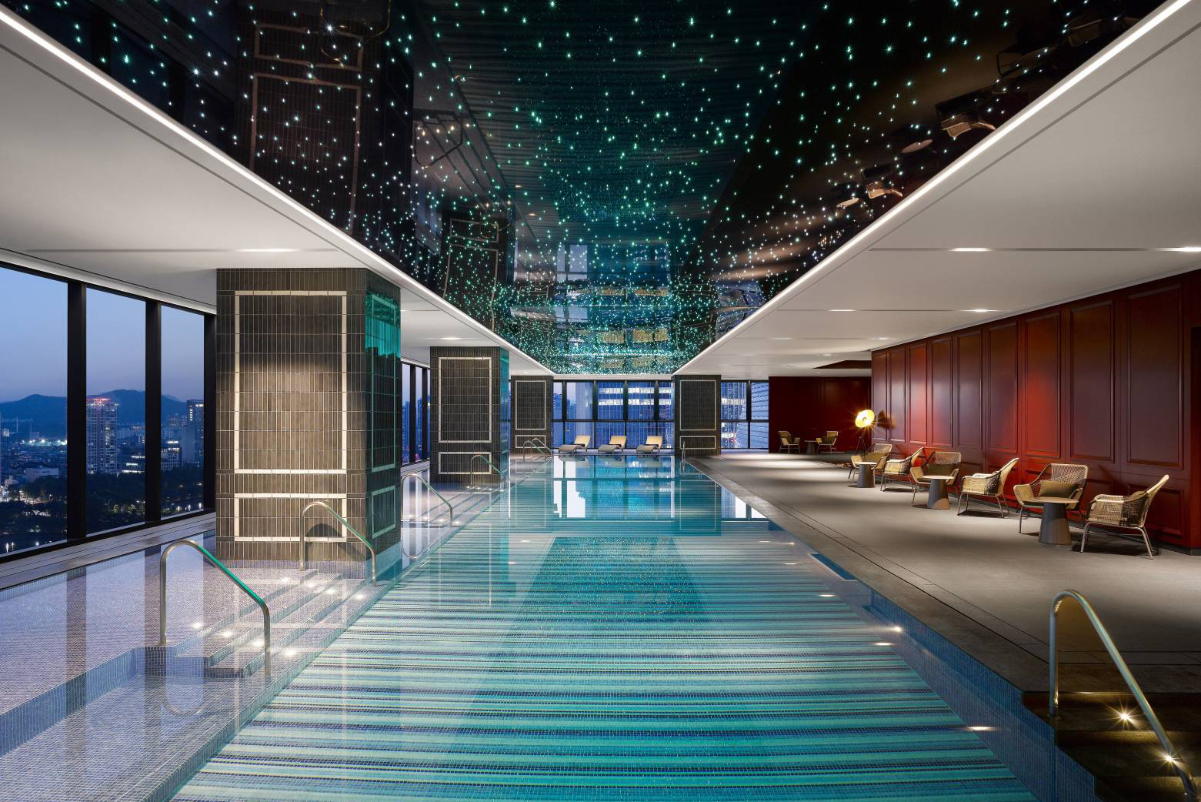Why Independent Hotels Will Continue to Rise

Skift Take
This sponsored content was created in collaboration with a Skift partner.
A prime example is Hotel Emma, located right along San Antonio’s iconic Riverwalk. Built inside the architectural shell of the decommissioned Pearl Brewery, the 146-room Emma has a distinctive interior design (by the renowned firm Roman and Williams) and has gathered numerous accolades for its design and service, including a spot on the Condé Nast Traveler Gold List and recognition from Travel + Leisure World's Best Awards and TripAdvisor Travelers' Choice Awards.
“We have an unbeatable location on the banks of the Museum Reach of the San Antonio River and [we’re] within the 22-acre Pearl Culinary Campus, which is home to a multitude of chef-driven restaurants, bars, boutique shops, a twice-weekly farmer’s market, Jazz TX (a live music venue), and [an outpost of] the Culinary Institute of America specializing in Latin cuisine,” said Bill Petrella, Hotel Emma’s president and general manager. “[Our] authentic five-star service and hospitality draws guests in and keeps them coming back.”
So too does the Emma’s affiliation with Preferred Hotels & Resorts, Petrella said. “We wanted the Hotel Emma brand to stand out — having the ability to create our own unique brand with our website and collateral — and not be overshadowed by a chain with homogenized standards. Preferred Hotels & Resorts champions that true independent spirit of all of its member hotels, and affiliation with the Preferred brand ensures our potential travelers that they will be staying at a unique property.”
It’s a critical distinction these days, as the oft-discussed trend toward experiential travel shows no signs of abating. What is new is the way that travelers are now participating in the curation and creation of their own journey. “Travelers want more control over their trips than ever before, and new digital tools allow them to co-create a trip within the structure of the apps and services they already use,” according to Skift’s 2019 Megatrends report. In other words, flexibility is now as key to the consumer journey as high-touch service and distinguished design.
While the world’s largest hotel chains have tried to target ever more individualistic consumers with new brand iterations that feel independent, it’s the truly stand-alone hotels like those in the Preferred portfolio that the consumer of today, well, prefers. That’s now being followed by a surge in interest from hotel owners in “de-flagging” properties that are affiliated with a well-known brand or opening brand new independents, like the Hotel Emma, from the ground up.
How Preferred Works with Hotels
As major hotel companies have been playing catch up with their own “soft brands,” Preferred Hotels & Resorts has enjoyed a multi-year run of growth, welcoming approximately 100 properties to its collection each year, including more than 80 since 2013 that previously carried major-brand “flags.”
“The ownership community are seeking robust, proven alternatives to support and grow the value of their assets,” said Kristie Goshow, chief marketing officer of Preferred Hotels & Resorts. “As they continue to grapple with the increasing costs of sale, incremental diversification in lodging options, and restrictive brand standards, Preferred is a welcome change (and a breath of fresh air).”
The Preferred model offers lower costs and increased flexibility, numerous hotel owners said in interviews with SkiftX. “Travel trends continue to point towards the desire for a unique experience which is best achieved and offered through an independent hotel,” said Scott Kucinski, vice president at Sotherly Hotels, which has a portfolio of 12 properties. “And the flexibility in terms of design, construction, and overall capital expenditures created gives an owner more control over their asset.”
That take was echoed in a recent study by the hospitality consultancy HVS, which found that Preferred-affiliated properties outperformed the competition in both revenue per available room (RevPAR) and average daily rate (ADR) for the years 2015 to 2018. “Both RevPAR and ADR increased by 8.5 percent and 9.0 percent, respectively, but more importantly, the ADR and RevPAR penetration figures experienced nearly 10 percent increases over the three years,” according to the report.
Preferred properties also paid significantly lower “affiliation costs” during the period: Luxury brands levied a 12 percent affiliation cost, on average, of total rooms revenue, while Preferred Hotels & Resorts took just 1.4 percent, on average. (Affiliation costs include items like franchise, marketing, and loyalty program fees.)
Using 2018 figures, the HVS study concluded that “the total franchise cost for a 300-room hotel would be $266,000 (rounded) per year for a [Preferred] hotel, as compared to $2,307,000 (rounded) per year for a peer property (12% franchise cost). While this substantial difference is not universal across all properties, as these figures are presented in averages, the average franchise cost for a national brand is over nine times the affiliation cost of [Preferred] hotels.”
To celebrate the significant paradigm shift occurring in both how the hospitality industry understands the value of an independent hotel investment and how travelers view the holistic benefits of an independent hotel experience, Preferred Hotels & Resorts has declared today, October 22, 2019, as Independent Hotel Day. The brand plans to foster the celebration as an annual movement across the industry to include other independent hotel brands and stand-alone hotels alike. Independent Hotel Day is designed to bolster awareness for truly independent hotels and resorts around the world by educating industry and consumer audiences on what makes these one-of-a-kind properties so authentic, vibrant, and such important anchors of their local communities.
Throughout Independent Hotel Day, Preferred Hotels & Resorts and its member properties are declaring their collective pride of being independent through a series of compelling imagery and thoughtful stories about what it means to be independent and stand out “in a sea of sameness,” Goshow said. These celebrations will come to life on social media — via the brand’s @PreferredHotels channels and the individual accounts of each participating hotel — as well as on property at multiple hotels across the brand’s portfolio via a bedtime message that celebrates the essence of an independent hotel and thanks guests for “staying independent.”
“As human beings, we seek reflections of our self in the brands we consume, and the stories we choose to tell,” Goshow said. “Independent hotels are perfectly set to match this need. They demonstrate a freedom of spirit and a bold self-assurance. At Preferred, we have a duty to help the traveling public understand their hospitality options and realize their reflections at each of our 750 properties worldwide.”
“Our position is ‘no one hotel the same because no one guest is the same,’” Goshow added.
Independent but Working Together
While costs are no doubt important, the shift to independent soft brands is also driven by changing consumer preferences. “[We’re able to] offer all the benefits and features of a big box brand, but we have the ability to be creative and expose our guests to something original, organic, and without the rigid restrictions of a big box brand,” said Vo Tomulich, vice president of sales and marketing for Fortuna Hotel Collection, which has five hotels in New York City and Long Island. Among the many benefits are Preferred’s marketing, sales, and reservations services, Tomulich said. Fortuna also enjoys exposure to more than three million members of Preferred’s I Prefer Hotel Rewards program and benefit from valuable purchasing power by “leveraging” the overall Preferred portfolio to negotiate supplier discounts through its Alliance Partner program.
Other owners had similar praise for the model. “[Being] a part of the Preferred Hotels & Resorts Legend Collection is instrumental in reaching our customer through broader visibility and expanded reach that could not be fully achieved through a solely independent standalone effort,” said Michael Hoffmann, managing director for The Inn at Perry Cabin, a 78-room resort property on the Eastern Shore of Maryland.
“The benefits of Preferred’s infrastructure alone are a game changer,” Hoffmann said. “Through our affiliation with Preferred, we are provided access to global distribution systems, resulting in profound exposure to consortia [like Virtuoso, American Express Fine Hotels & Resorts, and Signature Travel Network] and individual travel agencies for the leisure side of our business.”
The sales connectivity that the brand provides is only one of the examples of how Preferred levels the playing field between chain and independent and bolsters the success of independent hotels worldwide. Preferred’s dominant sales team — with more than 85 sales experts — drives the strategic exposure among leisure travelers valued by Hoffmann and other independent hotels, in addition to generating significant corporate demand from more than 650 negotiated accounts globally and group business from major source markets and key meeting planner organizations. In addition, Preferred recently launched the hospitality arm of its PHG Consulting division, providing timely solutions to many trending industry challenges such as talent shortages, new skill sets and capability in revenue strategy, and critical support services for pre-opening or re-positioning.
All that helps The Inn at Perry Cabin reach wider audiences, while the property retains its distinctiveness. The hotel, which overlooks the Miles River as it flows toward Chesapeake Bay, offers golf, sailing, and other outdoor pursuits, as well as a backdrop for “something special, memorable, [or one of] life’s milestones,” Hoffmann said. More than anything else, those superlative on-property experiences are what keep the resort top of mind among guests, he added.
“Travel is [about] exploring the things that interest you, experiencing something that is unique and memorable, and feeling clothed in the warmth of hospitality,” Hoffmann said. “At the Inn, when you have lounged in an Adirondack chair along the Miles River as the tides change and the day ends amidst beautiful hues of seasonal colors in the sky, now that’s something you remember. It invigorates your senses.”
This content was created collaboratively by Preferred Hotels & Resorts and Skift’s branded content studio, SkiftX.




